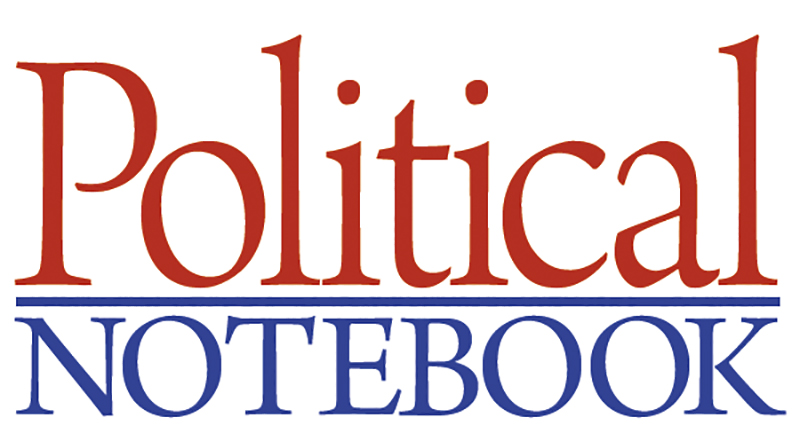Political Notebook: Interim health director to talk COVID-19 at county Democrats breakfast
Published 12:48 am Monday, March 8, 2021
Sens. Tillis, Burr vote against $1.9 trillion COVID-19 relief bill
WASHINGTON — Sen. Thom Tillis, a Republican from North Carolina, joined 48 Republicans in voting against the $1.9 trillion coronavirus relief bill last week after a 24-hour continuous voting session.
The American Rescue Plan Act of 2021 passed the Senate along party lines, 50-49, with one Republican absent. Tillis credited Congress with passing five bipartisan COVID relief packages totaling $4 trillion, but condemned Democrats for choosing a partisan path to ram through “far-left initiatives.”
Tillis criticized the bill’s bailout of “poorly run states like New York and California,” and questioned in a statement how the bill helped reopen schools. Tillis and nine other Republican senators filed a $650 billion relief plan last month to use the remaining unspent funds, but it was ultimately rejected.
“I am disappointed the Congressional Democrats and the Biden Administration chose this path while promising to work on a bipartisan basis over the past year, particularly when they had 10 Republicans willing to work on compromise legislation,” he said. “I am committed to reaching bipartisan outcomes on behalf of the people of North Carolina, and I hope we can return to finding areas of agreement instead of ramming through extreme policy outcomes.”
Sen. Richard Burr, R-N.C., also voted against the bill but did not release a statement about his decision.
Republicans filed nearly 600 amendments to the bill, but only debated and voted on a fraction of them. Overall, two GOP proposals were passed.
Changes include a reduction in weekly unemployment benefits from $400 to $300 per week through Sept. 6, and a reduction in the number of people who would receive direct payments by lowering the phaseout for individuals from $100,000 to $80,000 and for joint filers from $200,000 to $160,000.
Rep. Budd opposes ‘For the People Act’ aimed at expanding voter access
WASHINGTON — A Democrat-sponsored bill called “For the People Act” aimed at expanding voter access and reducing the influence of big money in campaigns passed through the U.S. House last week.
House Resolution 1 passed the House 220-210, with Rep. Bennie Thompson, a Democrat from Mississippi, joining Republicans in voting against the legislation.
In a statement, Rep. Ted Budd, a Republican representing North Carolina’s 13th Congressional District, said he strongly opposed the bill, which doesn’t do anything to address the concerns “millions of Americans still have following the 2020 election.”
“Unfortunately, Democrats are intent on further destroying trust in our elections by having the Washington swamp takeover of our right to vote,” Budd said. “H.R. 1 eliminates voter ID laws, codifies widespread mail-in voting, nationalizes ballot harvesting, allows felons to vote and allows politicians to receive taxpayer dollars to campaign. None of this addresses the concerns that millions of Americans still have following the 2020 election. H.R. 1 would make the chaos of the 2020 election the norm for all future elections.”
Budd published an op-ed in Fox News, and in a Twitter post said, “#HR1 is about taking away the rights of Republicans to have their voices heard, choose their candidates, and participate in free and fair elections.”
The bill, filed by Rep. John Sarbanes, a Democrat from Maryland, aims to “expand Americans’ access to the ballot box, reduce the influence of big money in politics, strengthen ethics rules for public servants, and implement other anti-corruption measures.” The bill promotes online voter registration, promotes voter registration high school students prior to graduation, prohibits a practice called “voter caging,” expands the use of absentee ballots, establishes a duty to report foreign election interference, strengthens the oversight of online political advertising and makes various changes to campaign finance such as clarifying a ban on fundraising for super PACS by federal candidates and officeholders.




